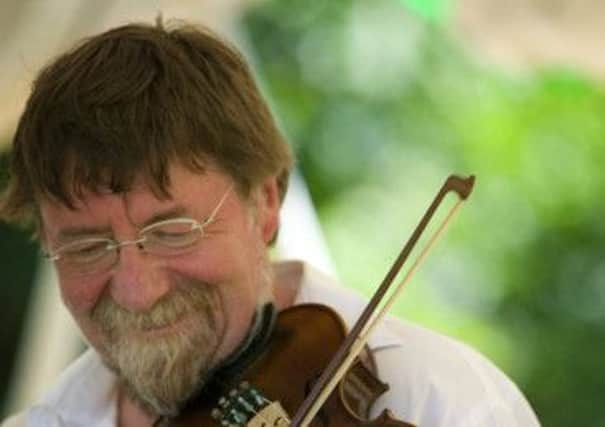Armed Forces Day: ‘War composers’ arrangement made


Now, Edinburgh composer Nigel Osborne has breathed new life into the work of seven “war composers” with a musical arrangement to celebrate this year’s Armed Forces Day on Saturday.
Osborne, who pioneered the use of music in therapy and rehabilitation for children traumatised by conflict, has created a medley featuring the music of the seven composers – including two Scots – which will be performed as part of Worlds in Collision, a two-day conference at this year’s City of London Festival exploring the relationship between music and the trauma of war.
Advertisement
Hide Ad“The experience of active military service was the artery through which the lifeblood of British musical creativity flowed, but from which much was also spilt,” said Osborne, Reid Professor at Edinburgh University until his retirement last year.
He said that unlike war poets such as Siegfried Sassoon and Wilfred Owen, whose work became synonymous with life in the trenches during the First World War, the composers were never recognised in the same way.
“What I liked about this project is that it gives a new voice to those who perished or who were damaged during the Second World War,” said Osborne.
“I was also attracted to the works of these composers as they represent the missing link in the history of British music. Cecil Coles, a Scottish composer killed during the war, was an important and influential figure. If Coles had lived and his music had continued in this direction it would have brought modernism to Scotland a few decades earlier than it arrived.”
The seven composers featured in the medley include well known names such as Vaughan Williams and George Butterworth – who was killed at the front in 1916 – as well as less well known composers such as Cecil Coles, from Kirkcudbright, and William Wallace, from Greenock, a surgeon and composer who served in the Royal Army Medical Corp.
Wallace was an eye surgeon who holds the record for the highest number of operations during the conflict – 19,000. He operated every day of the war. However the work shattered him, and so after returning home from the front he turned to composition.
Advertisement
Hide AdOsborne said: “The fact is that this generation of composers emerged without exception as soldiers of distinction. Many of them had pacifist inclinations, eschewing commissions to join as private soldiers or stretcher bearers.”
Coles, who managed to write music while at the front died in combat in 1918. Two of his pieces of music will be included in Osborne’s medley, Sorrowful Dance, which he wrote for his wife and newly-born daughter, and Behind the Lines.
Advertisement
Hide AdBehind the Lines is the first and only surviving movement of a suite Coles sent to his mentor, the composer Gustav Holst, in 1917. The manuscript is splattered with blood and mud and it is thought the other movements were destroyed by a shell.
The following year, Coles volunteered for a mission to rescue wounded British soldiers cut off in a wood by sustained enemy fire. On the way back, carrying his comrades, Coles was shot by an enemy sniper and died of his wounds.
The medley will be performed by the Royal Artillery Band as part of a concert that will also feature pre-war pieces of music including Butterworth’s Songs From a Shropshire Lad. Osborne said Butterworth had been much admired in the trenches in which he was killed.
“He was awarded the Military Cross for his heroic defence of the ‘Butterworth’ trenches and was twice more recommended for the honour before dying of a gunshot wound after capturing and holding Munster Alley in the Battle of the Somme,” he said. “His family knew nothing of his honours and his comrades had no idea he was a composer.”
Another of the seven composers was also killed in battle, Ernest Farrar, who was machine-gunned to death in the Somme Valley leading the Devonshires at the Battle of Epehy Ronssoy.
Before he was called up for military service, he was already well-known as a gifted composer and outstanding teacher.
Advertisement
Hide AdFarrar was granted leave in the summer of 1918 to conduct the premiere of his Heroic Elegy, dedicated to his fallen comrades, at the Harrogate Festival. Within days of returning to duty he was dead.
The other composers featured in the medley, Ivor Gurney and Arthur Bliss, were gassed during the war and although they survived, they never recovered from their experiences, Osborne said.
Advertisement
Hide AdThe concert programme will also feature a version of Karl Jenkins’ Benedictus from his work The Armed Man.
Worlds in Collision: Royal Artillery Band directed by Captain Craig Hallatt, Saturday 29 June, 6pm, Mansion House, London.